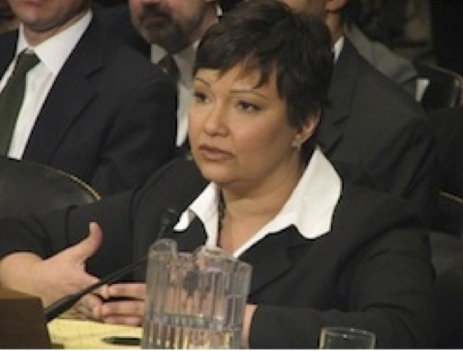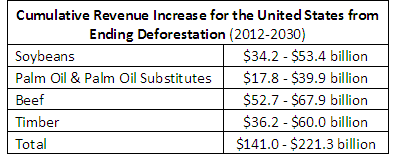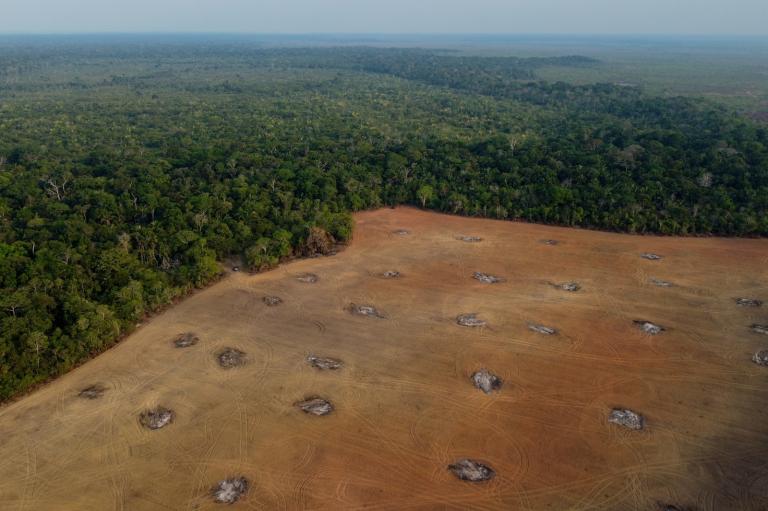If losing one football sized area of forestland every second or the potential to stop global warming pollution equivalent to all the world’s transportation sector aren’t compelling enough reasons to support efforts to halt tropical deforestation, then here is one more reason….$$$$$. A new report from the National Farmers Union and Avoided Deforestation Partners shows how much money could be saved in the U.S. farming and forestry sectors from efforts to halt tropical deforestation (a point I’ve discussed before). It concludes that U.S. soybean, oilseed, beef and timber producers will see total revenue increases of $141 – $221 billion from 2012-2030–$7-9 billion per year—if the U.S. joins other developed nations in investing in stopping deforestation. The report was launched at a press conference with representatives from the National Farmers Union, the American Forest & Paper Association, the United Steelworkers (representing forest products workers), and the Ohio Corn Growers Association (see .
That is real money that helps U.S. farmers, ranchers, foresters, and workers—money that could instead be used to invest in rural America. Here is the money saved per industry (my colleague will summarize the results for some of the key states).
To put these values into perspective, the total value of production across these four commodity groups is roughly $187.5 billion per year.* So investing in solutions to deforestation will save US farmers, ranchers, and foresters over this time period the equivalent of one year’s total annual production. It is like having a half a month’s extra sales without having work any harder.
So how does all this work? Agricultural expansion and illegal logging are key drivers of deforestation across the tropics. Agricultural expansion into forested lands is a main driver of deforestation in Brazil (as I discussed here). Illegal logging is a key element of deforestation in Indonesia (as I discussed here) and in other countries (as I discussed here).
Agriculture and forestry products from countries with high rates of deforestation are sold directly into the U.S and compete with goods produced in the U.S. Timber, beef and soy are globally traded commodities, so when these products are sourced from deforested land and sold in the global market, they compete directly with more sustainably produced U.S. exports and impact the market price of those products throughout the world (a point made by this advertisement).
The good news is that we can do something about this. I like to say that to address deforestation we need a combination of: (1) political will on the part of key tropical countries to take the necessary steps; and (2) resources to support tropical countries in protecting forests. On both fronts there have been positive movements of late. Key countries around the world (including tropical countries) are focused on solving this challenge to a level we’ve never seen before.
Countries like Brazil are taking concrete steps to address the loss of their tropical forests (as I’ve discussed here and you can see from this story). Indonesia has made a political commitment to reduce their overall global warming pollution and much of this reduction is expected to come from deforestation reductions (as I discussed here).
Just this week (May 27) key developed and tropical countries will meet in Norway to launch a new partnership on deforestation. Developed countries have pledged dedicated resources – possibly up to $6 billion (as this Bloomberg story notes) – from 2010-2012 towards efforts to slow the loss of tropical forests. The US made a pledge of $1 billion over this period at the Copenhagen Climate Summit and the Administration has proposed to Congress a down payment towards that amount (as my colleague discussed). But this “prompt start” funding isn’t enough. We’ll need more dedicated resources beyond 2012 if we are to capture this opportunity.
The bad news is that the US Senate climate bill currently under discussion misses a couple of key tools in the battle against deforestation. As I discussed here, the Senate bill fails to include a dedicated source of investment to ensure that countries develop robust systems, don’t shift emissions to other countries, and achieve early reductions in deforestation. This is a critical issue to fix as NRDC noted and as highlighted by some key companies recently (as these Time Magazine and Reuters articles capture).
*********************
Fixing the lack of dedicated funding for deforestation reductions in the Senate climate bill is a critical issue that needs to be addressed as the bill progresses to the President’s desk. Such an investment will pay for itself in benefits to America’s farmers, ranchers, foresters, and workers. The benefits far outweigh the costs even if you only take account of the savings to America’s agriculture and forestry industries. It is an investment in their future that also helps us reduce global warming pollution. If that isn’t win-win I don’t know what is.
America’s farmers, foresters, workers, environmental groups, and key companies understand how important stopping deforestation is. Now it is time for the Senate to listen and make this critical investment.
———————
* According to US Department of Agriculture and the Department of Commerce. Note, this includes only “wood products” for the timber industry, not “paper products”, which is consistent with the National Farmers Union and Avoided Deforestation Partners report. Paper products alone were valued at $163 billion in 2006.



